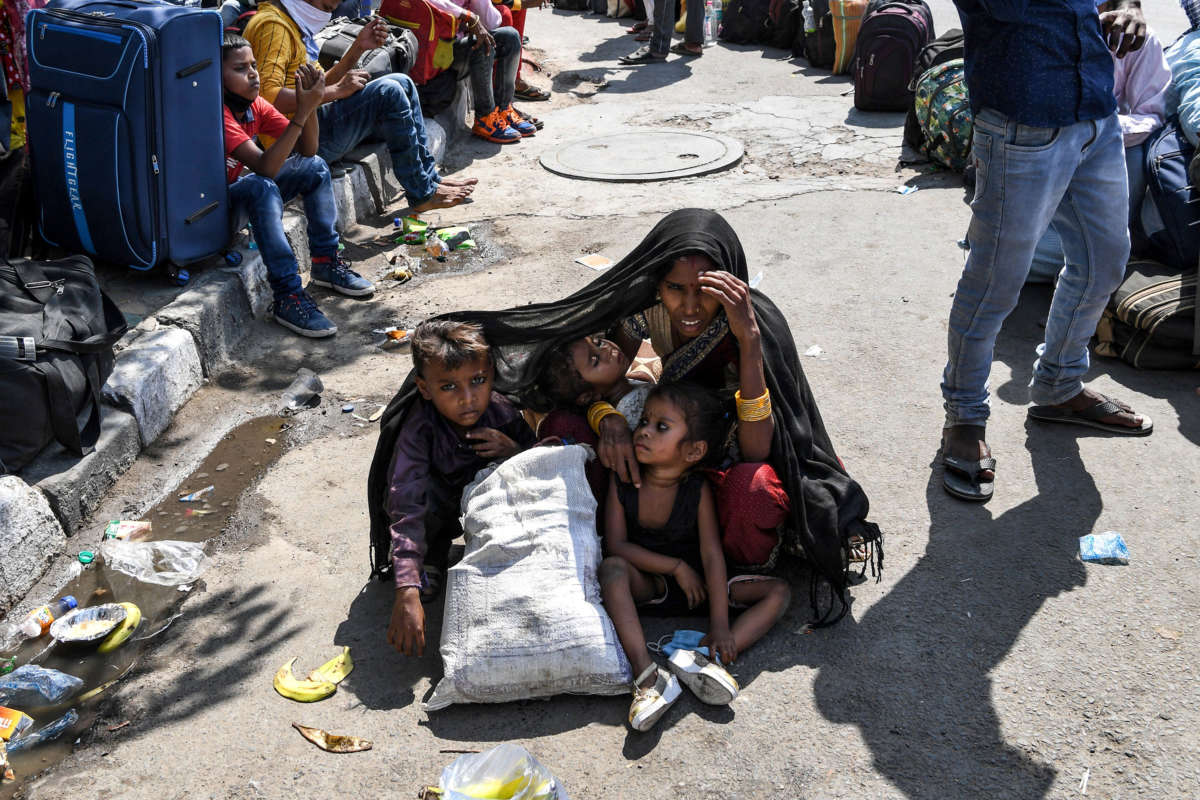Did you know that Truthout is a nonprofit and independently funded by readers like you? If you value what we do, please support our work with a donation.
A new report finds that as many as 60 million people could be reduced to living on less than $2 a day as a result of the coronavirus pandemic.
“The pandemic and shutdown of advanced economies could push as many as 60 million people into extreme poverty — erasing much of the recent progress made in poverty alleviation,” World Bank Group President David Malpass explained in a statement Tuesday.
To combat this anticipated poverty epidemic, the World Bank has sent emergency relief operations into 100 developing countries, which happen to be home to more than 70 percent of the world population. Thirty-nine of these countries are in sub-Saharan Africa while more than one-third are “in fragile and conflict-affected situations, such as Afghanistan, Chad, Haiti, and Niger.”
The aid will take the form of strengthening health care systems in overwhelmed and impoverished nations and helping both families and businesses struggle with the financial toll of the pandemic. Overall, the Bank Group pledged to make $160 billion available in the form of both grants and financial support over a 15-month period.
Last month, the World Bank speculated that roughly 49 million people would be pushed into extreme poverty, with the international financial institution defining “extreme poverty” as “living on less than $1.90 per day.” It identified two variables that are most likely to determine which areas are pushed into extreme poverty, including “the impact of the virus on economic activity” and “the number of people living close to the international poverty line.”
The World Bank also speculated last month that sub-Saharan Africa would be the hardest hit economically by the pandemic, even though it was expected to be one of the regions less hard hit by the virus itself.
“At the country-level, the three countries with the largest change in the number of poor are estimated to be India (12 million), Nigeria (5 million) and the Democratic Republic of Congo (2 million),” the World Bank wrote. “Countries such as Indonesia, South Africa, and China are also forecasted to have more than one million people pushed into extreme poverty as a consequence of COVID-19.”
The World Bank’s projections were shared by the think tank Brookings Institution, which wrote earlier this month that “our post-COVID-19 estimate is that extreme poverty in the world will rise this year by about 50 million people compared to the original 2020 forecast, and by 40 million people compared to our 2019 estimate.”
Prior to the pandemic, millions of people had been able to gradually lift themselves out of extreme poverty. In India, for example, the United Nations estimated last year that 271 million people had lifted themselves out of poverty since 2019. Those gains are in danger of being wiped out due to the coronavirus pandemic.
“There will be groups of people who climbed up the ladder and will now fall back,” Abhijit Banerjee, a professor at the Massachusetts Institute of Technology and a winner of the 2019 Nobel Prize for economics, told The New York Times last month. “There were so many fragile existences, families barely stitching together an existence. They will fall into poverty, and they may not come out of it.”
Trump is silencing political dissent. We appeal for your support.
Progressive nonprofits are the latest target caught in Trump’s crosshairs. With the aim of eliminating political opposition, Trump and his sycophants are working to curb government funding, constrain private foundations, and even cut tax-exempt status from organizations he dislikes.
We’re concerned, because Truthout is not immune to such bad-faith attacks.
We can only resist Trump’s attacks by cultivating a strong base of support. The right-wing mediasphere is funded comfortably by billionaire owners and venture capitalist philanthropists. At Truthout, we have you.
Our fundraising campaign is over, but we fell a bit short and still need your help. Please take a meaningful action in the fight against authoritarianism: make a one-time or monthly donation to Truthout. If you have the means, please dig deep.
